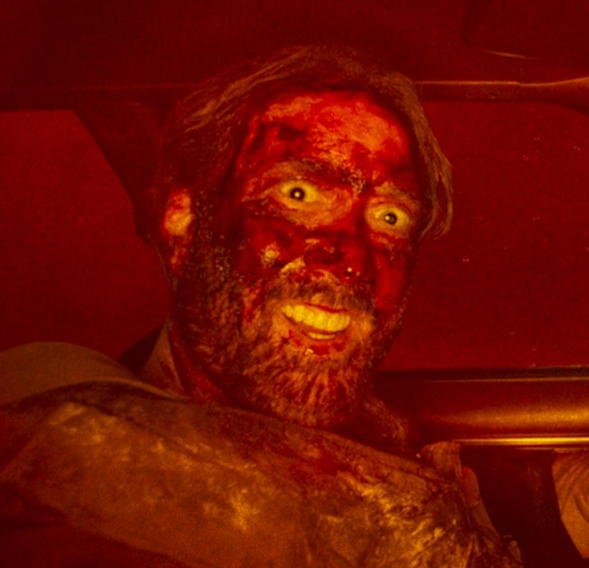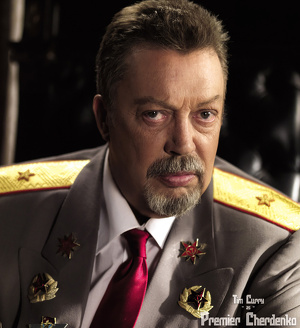It's completely fascinating how the GOP is so closely tied to "Christian values" and will go to absolutely comical lengths to do the exact opposite of what their religion teaches.
Its an internal contradiction of neoconservatism.
These are people who literally believe in shit like prosperity gospel, because American evangelical Protestantism is actually paganism that worships Mammon as America as God. They simultaneously are fiercely religious while fiercely capitalist. Their religious beliefs don't influence their politics as much as their politics influence their religious beliefs. So they will hold positions that are entirely anathema to the scripture of their faith like commodifying religious icons and idolatry of their political leaders without a hint of cognitive dissonance, because capitalism and Christianity are both central to the moral narrative the neocons seek to construct to revitalize a society that has been hollowed out by...capitalism
This is fascinating to me. Do you have any recommendations of decent places to read more about it?
I mean a lot of this particular post was just my own opinion, following directly on this reddit post I made, but Corey Robin's The Reactionary Mind has a great chapter on the ideology behind the neoconservative project. Here's some excerpts:
According to its idealists, the free market is a harmonious order, promising an international civil society of voluntary exchange, requiring little more from the state than the occasional enforcement of laws and contracts. For Buckley and Kristol, this was too bloodless a notion upon which to found a national order, much less a global empire. It did not provide the passion and élan, the gravitas and authority, that the exercise of American power truly required, at home and abroad. It encouraged triviality and small-minded politics, self-interest over the national interest - not the most promising base from which to launch an empire. What's more, the right-wingers in charge of the Republican Party didn't seem to realize this.
...
Kristol confessed to a deep yearning for an American empire: "What's the point of being the greatest, most powerful nation in the world and not having an imperial role? It's unheard of in human history. The most powerful nation always had an imperial role." But, he continued, previous empires were not "capitalist democracies with a strong emphasis on economic growth and economic prosperity." Because of its commitment to the free market, the United States lacked the fortitude and vision to wield imperial power.
"It's too bad," Kristol lamented. "I think it would be natural for the United States...to play a far more dominant role in world affairs. Not what we're doing now but to command and to give orders as to what is to be done.People need that. There are many parts of the world, Africa in particular, where an authority willing to use troops can make a very good difference, a healthy difference." But with public discussion moderated by accountants, Kristol thought it unlikely that the United States would take its rightful place as the successor to empires past."
Immediaty following [9/11], intellectuals, politicians, and pundits - not on the radical left, but mainstream conservatives and liberals - breathed an audible sigh of relief, almost as if they welcomed the strikes as a deliverance from the miasma Buckley and Kristol had been criticizing. The World Trade Center was still on fire and the bodies entombed there scarcely recovered when Frank Rich announced that "this week's nightmare, it's now clear, has awakened us from a frivolous if not decadent decade-long dream." What was that dream? The dream of prosperity, of surmounting life's obstacles with money.
...
This ethos had terrible domestic consequences. For Francis Fukuyama, it encouraged "self-indulgent behavior" and a "preoccupation with one's own petty affairs." It also had international repercussions. According to Lewis "Scooter" Libby, the cult of peace and prosperity found its purest expression in Bill Clinton's weak and distracted foreign policy, which made "it easier for someone like Osama bin Laden to rise up and say credibly "The Americans don't have the stomach to defend themselves. They won't take casualties to defend their interests. They are morally weak."
What these conservatives longed for was an America that was genuinely imperial - not just because they believed it would make the United States safer or richer, and not just because they thought it would make the world better, but because they wanted to see the United States make the world.
At the most obvious level, 9/11 confirmed what conservatives had been saying for years: the world is a dangerous place, filled with hostile forces that will stop at nothing to see the United States felled. More important, 9/11 gave conservatives an opportunity to articulate, without embarrassment, the vision of imperial America they had been quietly nourishing for decades. Unlike empires past, they argued this one would be guided by a benign, even beneficient vision of worldwide improvement. Because of America's sense of fair play and benevolent purpose - unlike the Britain or Rome, the United States had no intention of occupying or seizing territory of its own - this new empire would not generate the backlash that all previous empires had generated.
...
For conservatives, the two years after 9/11 were a heady time, a moment when their simultaneous commitment and hostility to the free market could finally be satisfied. No longer hamstrung by the numbing politics of affluence and prosperity, they believed they could count on the public to respond to the call of sacrifice and destiny, confrontation and evil. With "danger" and "security" the watchwords of the day, the American state would be newly sanctified - without opening the floodgates to economic redistribution. 9/11 and the American empire, they hoped, would at last resolve the cultural contradictions of capitalism that Daniel Bell had noticed long ago but which had only truly come to the fore after the defeat of Communism.
This chapter pairs well with David Harvey's examination of neoconservatism in A Brief History of Neoliberalism:
If the neoliberal state is inherently unstable, then what might replace it? In the US there are signs of a distinctively neoconservative answer to this question.
...
US neoconservatives favor corporate power, private enterprise, and the restoration of class power. Neoconservatism is therefore entirely consistent with the neoliberal agenda of elite governance, mistrust of democracy, and the maintenance of market freedoms. But it veers away from the principles of pure neoliberalism and has reshaped neoliberal practices in two fundamental ways: first, in its concern for order as an answer to the chaos of individual interests, and second, in its concern for an overweening morality as the necessary social glue to keep the body politic secure in the face of external and internal dangers.
In its concern for order, neoconservatism appears as a mere stripping away of the veil of authoritarianism in which neoliberalism sought to envelop itself. But it also proposes distinctive answers to one of the central contradictions of neoliberalism. If "there is no such thing as a society but only individuals" as Thatcher initially put it, then the chaos of individual interests can easily end up prevailing over order. The anarchy of the market, of competition, and of unbridled individualism (individual hopes, desires, anxieties, and fears; choices of lifestyle and of sexual habits and orientation; modes of self-expression and behaviors towards others) generates a situation that becomes increasingly ungovernable. It may even lead to a breakdown of all bonds of solidarity and a condition verging on social anarchy and nihilism.
In the face of this, some degree of coercion appears necessary to restore order. The neoconservatives therefore emphasize militarization as an antidote to the chaos of individual interests. For this reason, they are far more likely to highlight threats, both at home and abroad, to the integrity and stability of the nation. In the US this entails triggering what Hofstadter refers to as "the paranoid style of American politics" in which the nation is depicted as besieged and threatened by enemies from within and without.
...
Neoconservatism has long hovered in the wings as a movement against the moral permissiveness that individualism typically promotes. It therefore seeks to restore a sense of moral purpose, some higher-order values that will form the stable center of the body politic. This possibility is in a way presaged within the framework of neoliberal theories which, "by questioning the very political foundation of interventionist models of economic management...have brought issues of morality, justice, and power - although in their own peculiar ways - back into economics." What the neoconservatives do is change the "peculiar ways" in which such questions enter into debate. Their aim is to counteract the dissolving effect of the chaos of individual interests that neoliberalism produces. They in no way depart from the neoliberal agenda of a construction or restoration of a dominant class power. But they seek a legitimacy for that power, as well as social control through construction of a climate of consent around a coherent set of moral values.
...
But the moral values that have now become central to the neoconservatives can best be understood as products of the particular coalition that was built in the 1970s, between the elite class and business interests intent on restoring their class power, on the one hand, and an electoral base among the "moral majority" of the disaffected white working class on the other. The moral values centered on cultural nationalism, moral righteousness, Christianity (of a certain evangelical sort), family values, and right-to-life issues, and on antagonism to the new social movements such as feminism, gay rights, affirmative action, and environmentalism. While this alliance was mainly tactical under Reagan, the domestic disorder of the Clinton years forced the moral values argument to the top of the agenda in the Republicanism of Bush the younger. It now forms the core of the moral agenda of the neoconservative movement.
so neoconservatism is literally just diet fascism, the description is strikingly similar, while neolibs would just be socdems who weren’t afraid of the poors, partying away and profiting without a care in the world for the rest of humanity, seems almost apt though i think this understates the neolib version of the empire very much (mostly just the Clintons really tbf)
Free market capitalism is Christian though. The Bible says "He who does not work, neither shall he eat" meaning we shouldn't have food stamps. Also, taxing the rich to provide for social welfare violates "Though shalt not covet thy neighbor's goods."
-Actual arguments I have heard
sometimes I visit the cemetery and place a stone on the grave of subtext
Me (Comedian): I'm going to satirize the world around me.
The World Around Me: "i'm goINg TO sATirize THE WOrlD aROund ME "
implying obama makes kings and not incompetent pawns for corporate interests
they got his weird forward lean and massive melon right
Did anyone catch the CPAC nazi icon stage? https://twitter.com/LCRWnews/status/1365423041530916866
I feel like it must be some form of confirmation bias at play here, but like... is it? It's so spot on... is this just what political stages look like?
yes
https://www.nbcnews.com/politics/donald-trump/he-s-back-trump-set-address-cpac-bid-extend-his-n1258861
My brain is going to be seeping out of my ears listening to Trump go on about being snubbed by Tim Curry at Tom Hanks' 1998 christmas party, just like the old times.
he's probably going to give everyone COVID, and they'll thank him for it
That took that meme statue of a giant golden orge Trump it made it reality, lmao. Life is beyond parody









